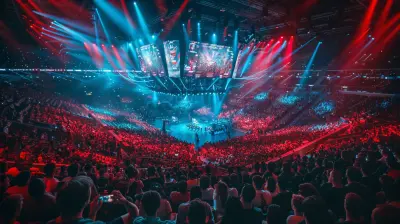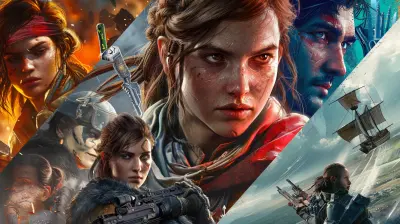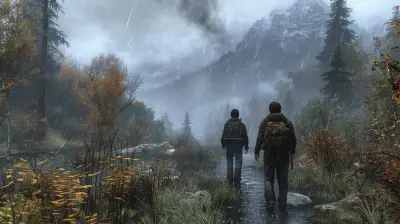Exploring Mythology in Modern Game Narratives
25 November 2025
Mythology has been part of storytelling since humans could talk around fires. Ancient tales of gods, monsters, and heroes laid the groundwork for how we understand conflict, morality, and what it means to be human. Fast forward to today, and these age-old legends still have a place—even in the digital worlds we explore through video games.
But have you noticed how mythological influence seems to pop up in almost every corner of modern gaming? From sprawling open-world RPGs to fast-paced action games, developers are pulling pages straight from the mythological playbook. And it’s not just for the aesthetic—mythology adds depth, resonance, and a sense of the epic that modern audiences still crave.
Let’s dive deep into how mythology fuels some of the most compelling narratives in modern video games—and why it works so darn well.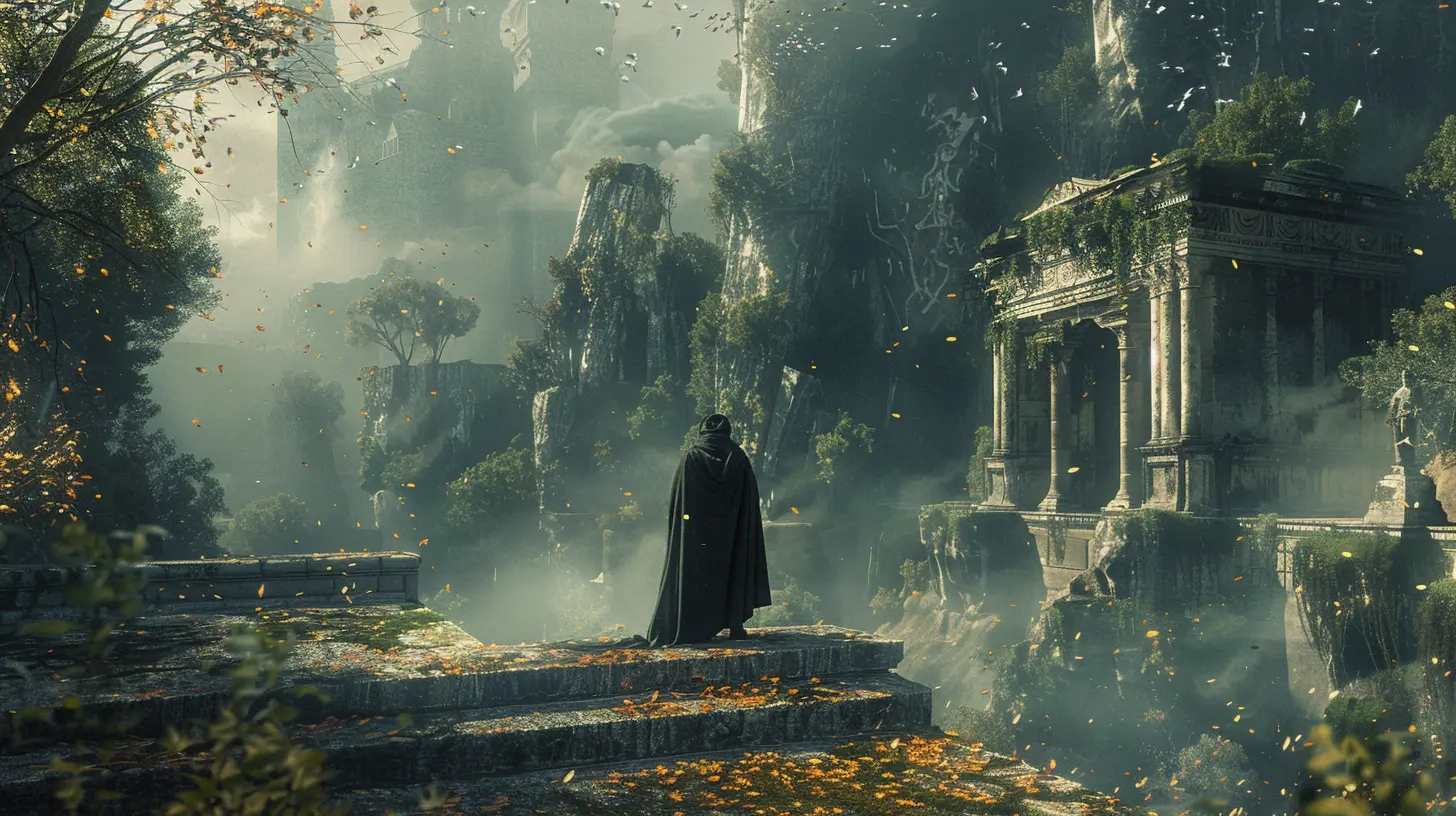
Why Mythology Still Hits Hard in Gaming
Think about it—why do we still tell stories about Zeus, Anubis, Odin, or Quetzalcoatl? Because mythological stories hit something primal in us. They’re full of drama, high stakes, and larger-than-life characters facing impossible odds.That’s basically the DNA of a good video game.
Game narratives tap into our love for rich, symbolic stories. With mythology, developers get ready-made lore, epic characters, and themes like sacrifice, rebirth, and destiny. Sprinkle in some interpretive freedom, and you’ve got the foundation for a jaw-dropping game world.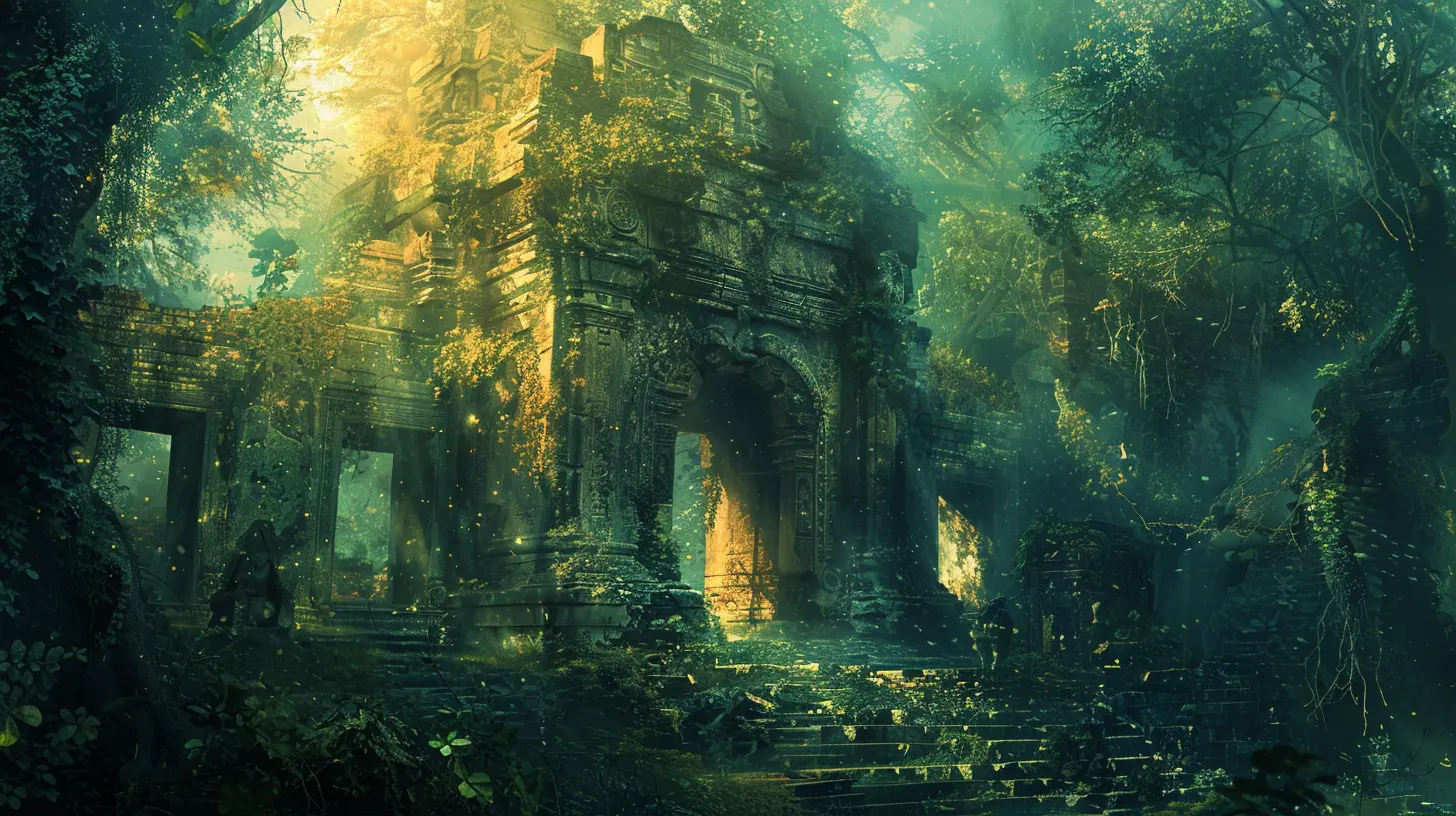
The Evolution of Mythology in Games
Gaming has come a long way from the simple "save the princess" plots. Today, players want more than just action—they want emotional depth, complex characters, and stories that make them think.Mythology has evolved alongside these expectations. Early games referenced myths purely for flavor—think Greek columns in a background or a “boss” named Minotaur. But today’s narrative-focused titles dive head-first into myth, adapting it, questioning it, and sometimes turning it completely on its head.
Take games like God of War (2018) or Hades. They not only use mythological frameworks—they become reimaginings that put gods, mortals, and monsters through totally new emotional arcs.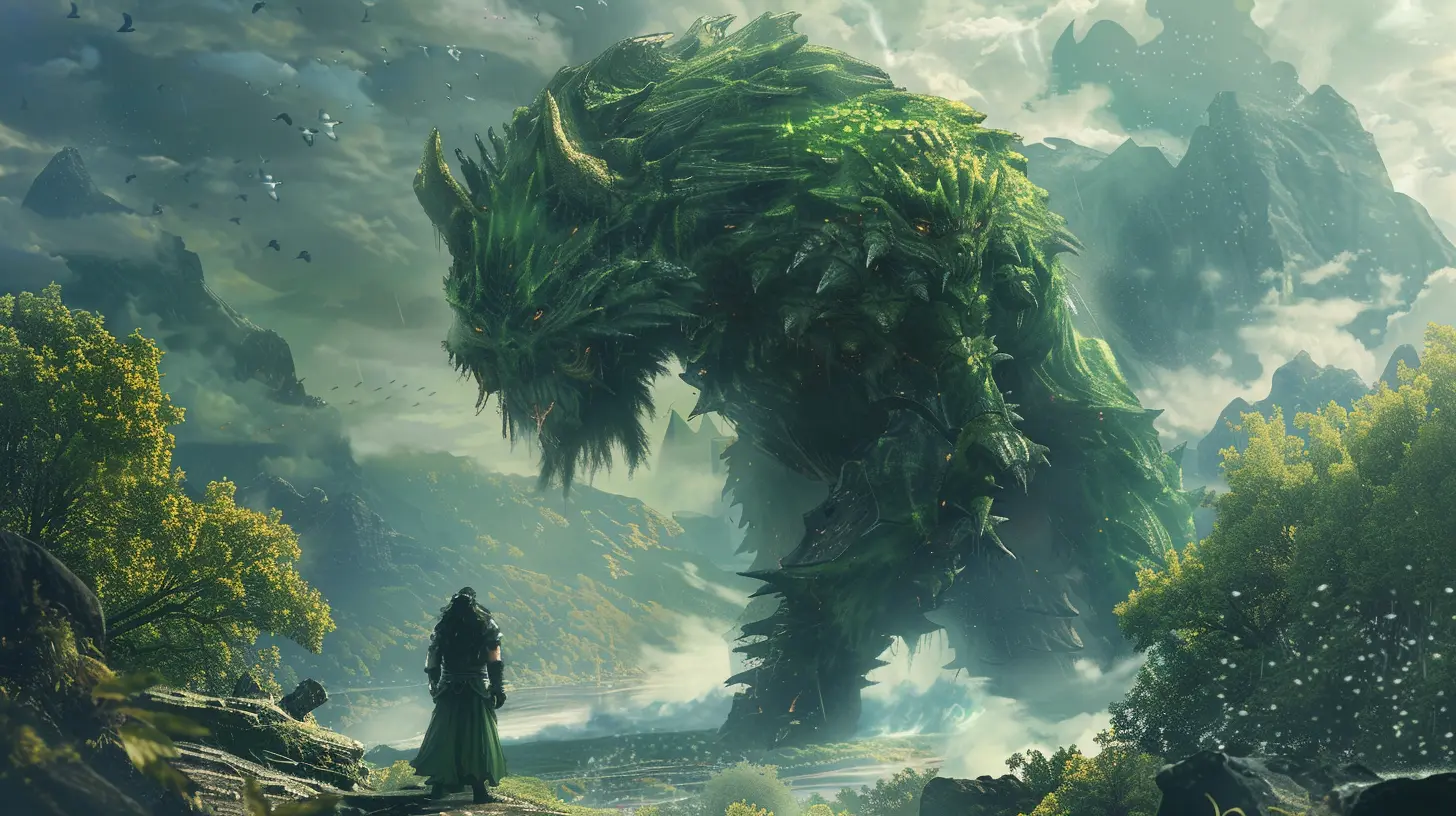
God of War – From Carnage to Character Depth
Let’s be honest, the original God of War games were all about rage-fueled combat with a sprinkling of Greek mythology thrown in. You had Kratos mowing down Olympians like he was cleaning house.But when Santa Monica Studio rebooted the series in 2018, things changed. The setting moved from Greece to Norse mythology, and Kratos? He grew a beard, a conscience, and a kid.
Now, mythology isn’t just the backdrop—it’s deeply woven into the fabric of the story. Characters like Baldur, Freya, and Tyr aren’t just boss fights—they’re people with emotional depth, conflicts, and cultural weight. Norse myth becomes a canvas for a father-son journey, tackling issues like legacy, regret, and becoming better than your past.
It’s mythology, but with a modern twist—and players ate it up.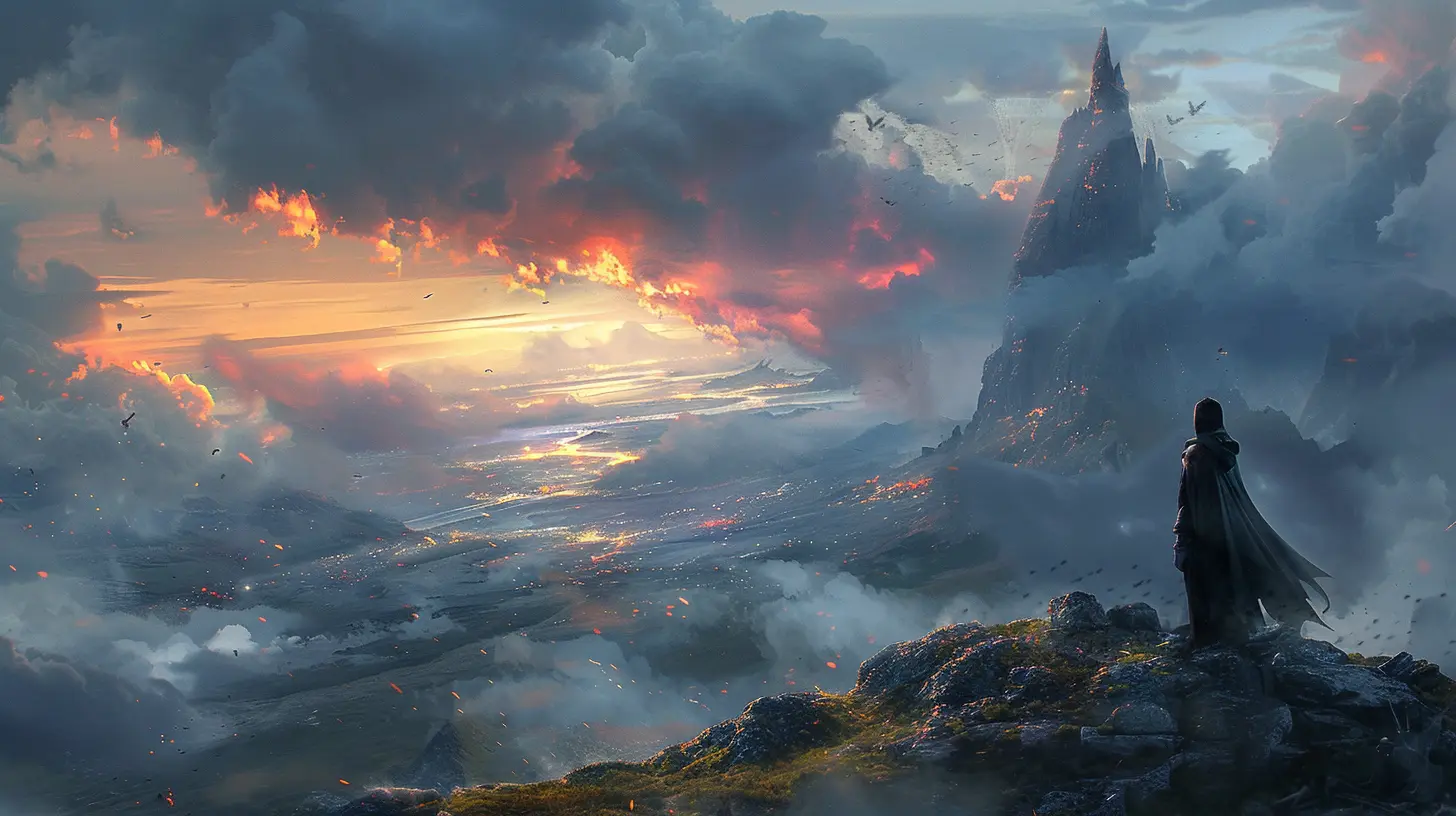
Assassin’s Creed – A History-Mysticism Mashup
Ubisoft’s Assassin’s Creed series started off as a historical parkour simulator, but it soon began dipping its toes into deeper waters. By the time we got to titles like Origins, Odyssey, and Valhalla, the series was knee-deep in myth.In Odyssey, you literally meet and fight mythical creatures like Medusa and the Cyclops, but here's the twist: the narrative layers them with science-fiction explanations through the Isu—an ancient, god-like race that predates humanity. So while you're fighting a Minotaur, you're also uncovering age-old tech and lost civilizations.
Valhalla pushes this even further with Norse mythology. The story blends real Viking history with mythic overtones, letting you experience visions of Asgard, interact with Odin, and even shape the fate of realms.
It’s a narrative cocktail—part history lesson, part myth, and part sci-fi—and somehow, it works.
Hades – Making the Underworld Feel Human
Supergiant Games’ Hades took a different, more intimate approach to mythology. Instead of presenting the gods as distant figures, it brought them down to earth—well, under the earth.You play as Zagreus, the rebellious son of Hades, trying to escape the underworld. Along the way, you meet gods and goddesses like Athena, Dionysus, and Aphrodite—not as static deities, but as fully fleshed-out personalities with quirks, flaws, and charm.
What makes Hades really stand out is how it uses roguelike mechanics to reflect mythological cycles. Death and rebirth aren't just gameplay—they’re thematic. That feels deeply mythological, right? Like Sisyphus rolling up that boulder forever, or Persephone cycling through the seasons.
Mythology as Metaphor: Going Beyond the Literal
Sometimes, games don’t borrow exact myths—they use mythological themes as metaphors.Shadow of the Colossus, for example, doesn’t mention specific myths, but its narrative echoes countless legends about forbidden power, tragic heroism, and the cost of resurrection.
Even games like The Legend of Zelda draw from mythological archetypes. The hero's journey? Check. Magical relics? Double check. A battle between light and darkness? That’s as mythic as it gets. Link isn’t just a character—he’s an idea, a recurring symbol of courage through the ages.
Developers know mythology isn’t just about the gods—it’s about the feelings we attach to them. That’s what makes it timeless.
Cultural Spotlight: Diverse Myths from Around the World
It’s not all Greek and Norse, thankfully. The gaming industry is finally shining a spotlight on underrepresented mythologies—and it’s about time.Raji: An Ancient Epic
Raji: An Ancient Epic, developed by India-based Nodding Heads Games, dives into Hindu mythology. You play as Raji, a young girl chosen by the gods to rescue her brother from demons. The game blends stunning visuals with stories about Durga, Vishnu, and other deities, bringing Indian legends to life in a way rarely seen in mainstream gaming.Never Alone (Kisima Ingitchuna)
This indie gem centers on Iñupiat mythology from Alaska. Told through the eyes of Nuna and her arctic fox companion, the game introduces players to native Alaskan folklore and traditional storytelling, even including real voices and cultural insights from the Iñupiat community.Okami
Capcom’s Okami pulls from Japanese Shinto mythology, with the player taking on the role of Amaterasu, the sun goddess in wolf form. It’s not just a beautiful game—it’s a homage to a deep and nuanced belief system, shown through art and gameplay that celebrates life and balance.How Mythology Shapes Player Experience
Let’s zoom out a bit.Why does mythology work so well in games? Because myth taps into universal questions: Who am I? Where do I come from? What’s my destiny?
When you play a myth-inspired game, you’re not just swinging swords and casting spells—you’re engaging in symbolic actions. You’re evolving, making choices, facing trials, and learning about yourself through the avatar on-screen.
Just like how ancient myths were tools to teach morals or explain the world, modern games use myth to get us thinking—about life, legacy, and the consequences of power.
Player Agency Meets Ancient Themes
One major perk of using mythology in games is the interactivity. Unlike books or movies, games let you shape the myth.In games like Dragon Age: Inquisition or The Witcher 3, myth plays a big part in world-building. But you—yes, you—get to decide how those myths unfold. Do you side with the elven gods? Do you uncover forgotten truths that change everything?
This level of agency turns traditional passive storytelling into something personal and dynamic. It’s not just "a tale you’re told," it’s "a legend you’re living."
The Future of Mythology in Games
So where’s all this headed?With the rise of indie games and more diverse voices in the industry, we’re heading toward an era where global mythology gets its time in the spotlight. Imagine African deities in a fast-paced adventure. Or Polynesian sea gods in a survival game. Or Mesopotamian legends in a cyberpunk setting.
The opportunities are endless. And with game engines getting more powerful and storytelling becoming more flexible, developers have the tools to bring any myth to life—whether ancient, obscure, or entirely reimagined.
Final Thoughts
Mythology isn’t just a relic of the past—it’s a living, breathing source of stories that continues to evolve with us. In the world of modern gaming, it’s not just being referenced—it’s being reshaped.Games today are more than just entertainment. They're digital myths in the making. And just like the ancient tales, they ask us big, bold questions—and give us the chance to answer them with a controller in hand.
So the next time you take up a sword made by the gods, talk to a trickster deity, or journey through an underworld—remember: You’re not just playing a game.
You’re continuing a tradition thousands of years in the making.
all images in this post were generated using AI tools
Category:
Game LoreAuthor:

Luke Baker
Discussion
rate this article
1 comments
Emma McCune
Intriguing blend of ancient myths and contemporary gameplay!
November 26, 2025 at 4:28 AM

Luke Baker
Thank you! I’m glad you found the blend captivating—it's fascinating how ancient stories can enrich modern gameplay.
